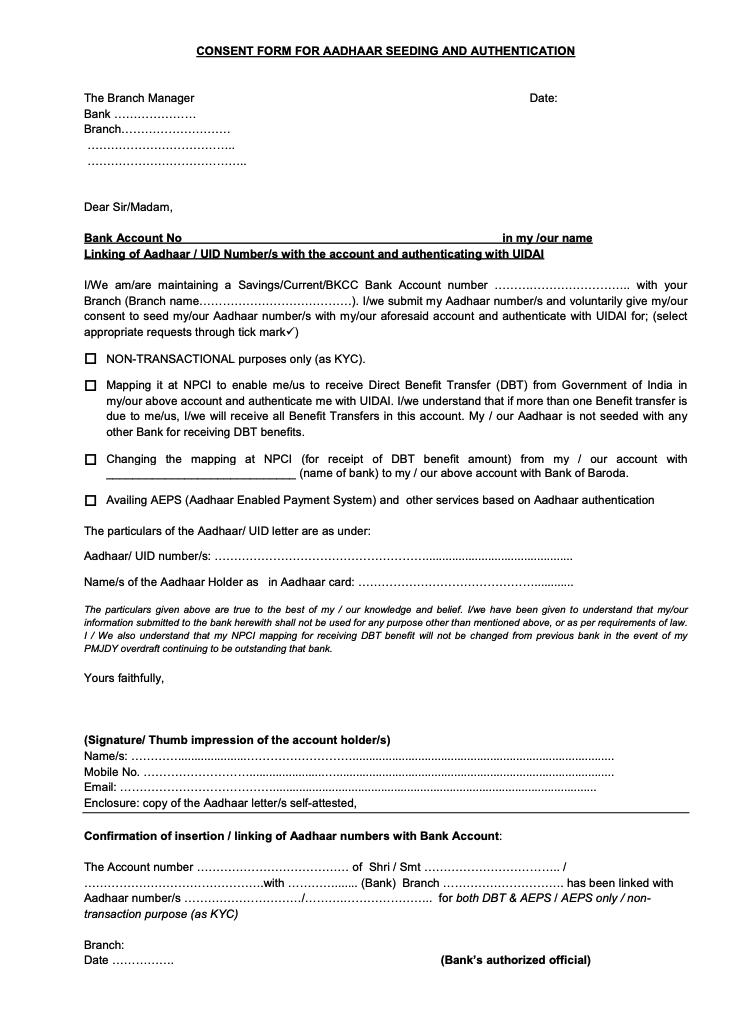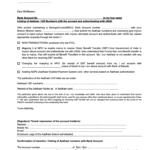What is AADHAAR consent form and why is it important? Well, AADHAAR is the unique identification number issued to residents of India. Organizations use it to verify identity. In the event of a revocation, the requestor is entitled to revoke his consent. The regulations for authentication require service providers to use a template provided by the UIDAI to obtain consent. The consent can be recorded in paper or electronic form, and the requesting organization must offer an alternative means of identification. The service provider must maintain a log of the consent information.
Right to revoke consent
The right to refuse the Aadhaar Programme is a fundamental right under the Aadhaar Act. You can refuse to use your Aadhaar number if you are not happy with the services provided. To revoke your consent, all you need to do is ask for an Aadhaar consent form stating the purpose for which you are giving the information and an alternative method for providing your identity information.
In most of the banks we visited, the customer did not have to sign a consent form. However, some bank officials knew the importance of consent and searched for the consent form on the system and printed it on the spot. However, the norm was to collect a photocopy of the Aadhaar card with a signature. This was considered consent for mapping purposes. Then the customer could no longer use their Aadhaar card for any purpose, including banking.
Methods of obtaining consent
The Aadhaar Act 2016 lays down the terms and conditions for the use of this identification number. In addition to the consent form, the requesting organization must also provide an alternative form of identification and keep a record of this consent. This article describes the consent process and the rights of the individual. The Act is a must-read for everyone interested in protecting their privacy. There are many benefits of Aadhaar, but the most important benefit is the ability to use your number.
The UIDAI offers an e-KYC service but does not provide a means of revoking the consent. Further, it does not state the turnaround time for revoking the consent. This is concerning for individuals because the consent form supplied by the agency does not mention how to revoke authentication. This is a violation of a person’s legal rights, and the organization is liable for ten lakh rupees per day if the violation continues for an extended period of time.
Download AADHAAR Consent Form 2024

